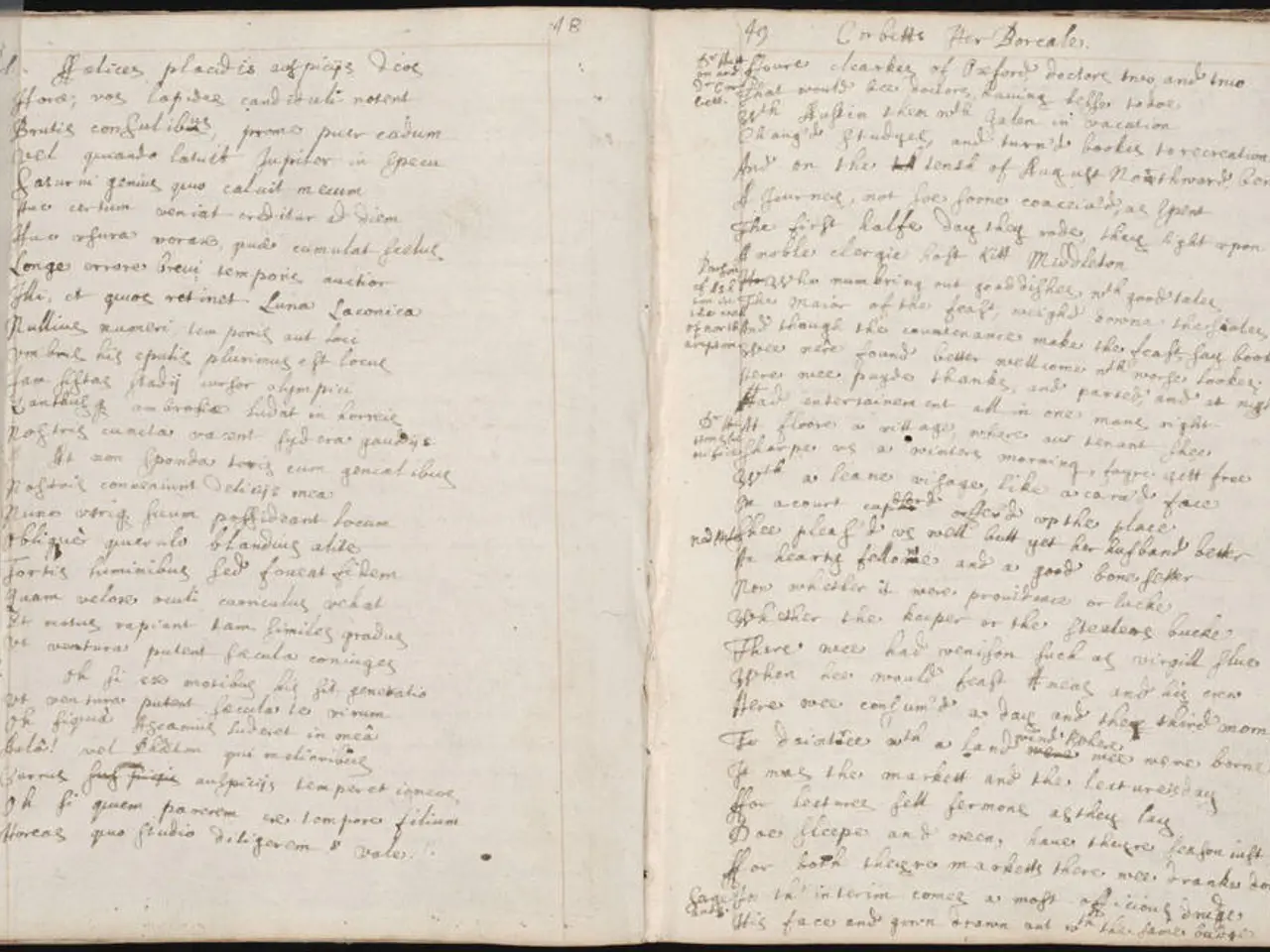Guide to Crafting a Book Dedication That Leaves a Lasting Impression on Readers
Writing a Heartfelt Book Dedication: A Personal Touch to Your Masterpiece
A book's dedication page, nestled between the copyright and the table of contents, often holds a special place. It is a short, sweet, and heartfelt message that authors use to express their gratitude towards those who have played a significant role in their writing journey.
Most dedications are just one or two sentences long, taking up less than half a page. They are aligned to the center, in italics, and maintain a consistent font with the rest of the book. However, the style and tone can vary greatly, reflecting the author's personality and emotions.
N.K. Jemisin, for instance, dedicated her award-winning novel "The Fifth Season" to those who have endured survival, violence, oppression, and fought for freedom. Ashley Poston, on the other hand, penned a humorous dedication in "The Seven Year Slip" for food lovers who struggle in the kitchen.
Carl Sagan's dedication of "Cosmos" to his wife Annie serves as a poignant reminder of the human experience as beautiful and meaningful. C.S. Lewis, in his classic "The Lion, the Witch, and the Wardrobe," dedicated the book to his goddaughter Lucy, a testament to the power of inspiration from young minds.
S.A. Chakraborty dedicated "The Adventures of Amina al-Sirafi" to parents struggling in tough circumstances, a heartfelt gesture of empathy and solidarity.
Writing a dedication is optional, but it can humanize the author, show gratitude and humility, and provide a shorter, more personal alternative to acknowledgements for thanking people who are important to the author. Finishing a book can be a time-consuming and difficult feat, so dedicating it to someone you appreciate can make them feel special.
When writing a book dedication, let your personality and emotions shine through. Address the dedication clearly, mention why you’re dedicating the book, and use a tone that reflects your relationship with the dedicatee. Optional: consider linking your dedication to the theme or mood of the book for deeper resonance.
Here's an example of a heartfelt dedication:
"To my grandmother, whose stories sparked my imagination and whose love lit every page."
This kind of dedication acknowledges importance, conveys affection, and connects personally without being extensive.
In summary, a good dedication is a brief but genuine acknowledgment that makes your gratitude clear and meaningful to the person or people you wish to honor. Each author writes their dedications in unique ways and styles that range from sad and heart-wrenching to witty and hilarious. So, let your dedication be a reflection of your unique journey and the special people who have been a part of it.
In the process of mobile publishing, a properly formatted metadata is crucial. It should contain essential details like the book title, author's name, publication date, and place, as these help promote the book on social platforms and during searches.
The design of a book's cover and overall layout is an integral part of the publishing process. A well-crafted design not only appeals to the reader's aesthetics but also provides a glimpse into the content and lifestyle portrayed in the book, whether it's home-and-garden decor or a fantasy world.
Besides the main text, the book's dedication page plays a significant role in connecting the author with the reader. It serves as a glimpse into the author's personal life, values, and relationships, making the reader feel more attached to the author and the book.
By dedicating their book to someone special, authors can extend their gratitude beyond the acknowledgements section and create a more personal connection with their readers, reflecting the literary world's social nature.




